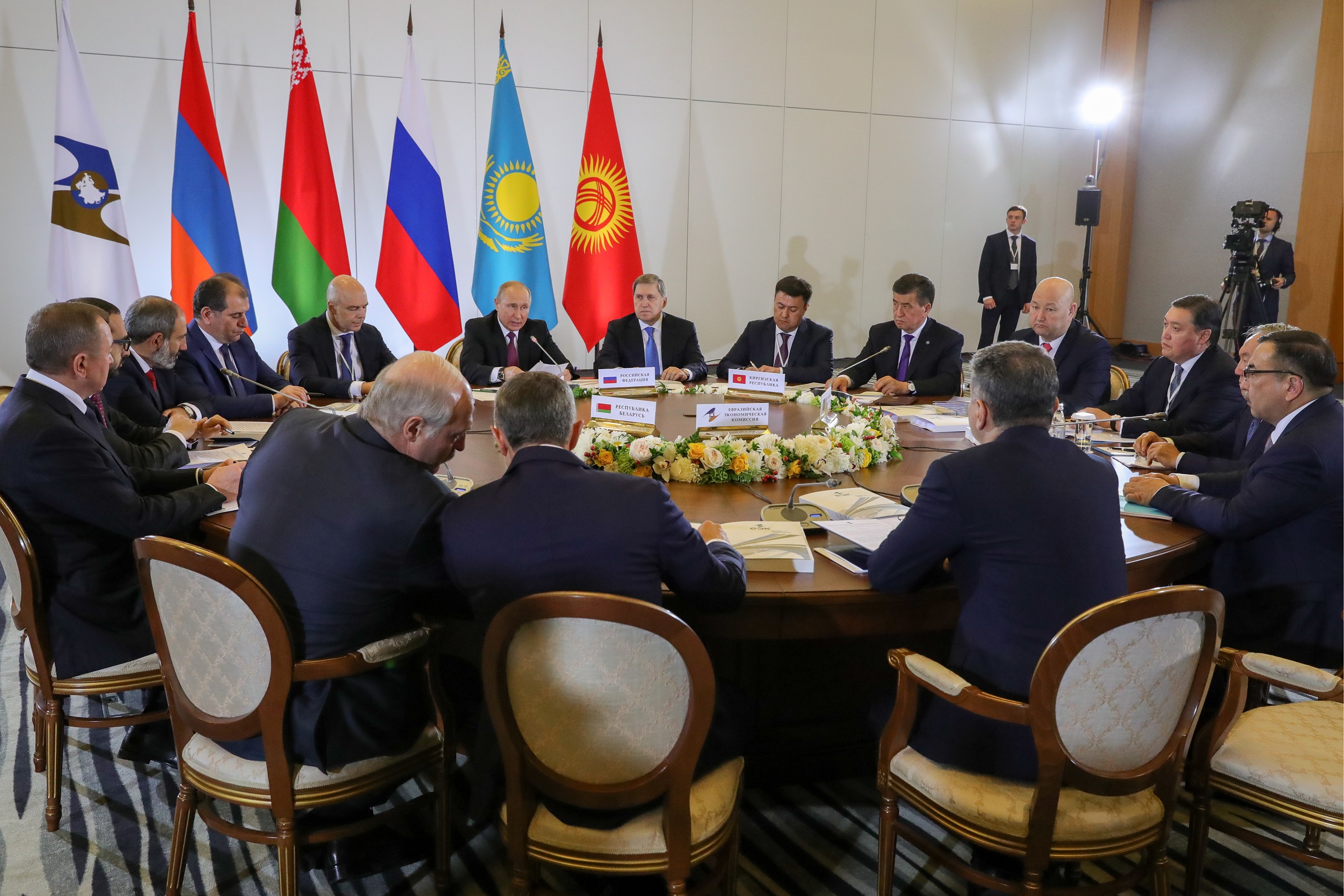ID :
492277
Tue, 05/15/2018 - 12:32
Auther :
Shortlink :
https://oananews.org//node/492277
The shortlink copeid
EAEU enhances integration, accepts Moldova as observer

MOSCOW, May 15. /TASS/. The meeting of the Supreme Eurasian Economic Council that took place in Sochi on Monday has become an important step towards boosting comprehensive collaboration and integration of Russia, Armenia, Belarus, Kazakhstan and Kyrgyzstan. Leads of the EAEU (Eurasian Economic Union) member-states discussed cooperation in energy, digital economy, medicine and ecology. The participants particularly addressed the issues of creating an equal market of goods and services, development of trade and investment ties, strengthening of industrial and technological cooperation.
The proposal to grant the EAEU observer status to the Republic of Moldova was unanimously approved. Previously the participants of the meeting endorsed the draft statute of the observer status.
Russian President Vladimir Putin held meetings on the sidelines of the summit with his counterparts from Belarus, Kazakhstan, and Kyrgyzstan where they discussed the current issues related to bilateral relations and pressing global problems, regarding which Moscow and its EAEU partners stick to similar positions.
Putin’s meeting with Nikol Pashinyan, who was elected Armenia’s prime minister a short while ago after a severe internal political crisis, was of particular interest. Pashinyan confirmed that Moscow and Yerevan are strategic partners. "We are determined to give a new impetus to relations (between Russia and Armenia - TASS) in political terms and trade and economic area." Russia’s President stressed that Moscow "views Armenia as its closest partner and ally in the region" in terms of both economic cooperation and security issues.
Enhancing integration
Traditionally, the EAEU summit had two meetings - a private and a broad one. Vladimir Putin who opened both meetings as chairman, explained his ideas regarding the integration agenda for 2018. "Improving efficiency of the common market inside the Union and getting national economic regulation rules closer are among our top-priority tasks. The main focus will still be put on removing the remaining limitations and withdrawal on the way of free movement of goods, capital and workforce," Putin said, adding that "by the end of this year 60% of the total amount of services will be regulated by the Union’s law."
"It is necessary to keep developing integration processes. Such areas as nuclear and renewable energy, ecology, medicine, space, tourism and sport have huge potential for close collaboration," he said, noting that Russia’s chairmanship proposes implementation of several promising digital projects in the fields of e-commerce, goods motion tracking technologies, creation of transport corridors and industrial cooperation.
Overall, the Eurasian Economic Union is rapidly developing, Putin said. In 2017, the total GDP of its member-states grew by 1.8%, industrial production added 1.7%, while agriculture rose by 2.5%.
Plus Moldova
Leaders of the Eurasian Economic Union (EAEU) member-states agreed to grant observer status to Moldova, Russian President said when opening a broad meeting of the Supreme Eurasian Economic Council. Putin extended a welcome to Moldovan President Igor Dodon who joined the meeting. "We expect that as an observer state, the Republic of Moldova will actively participate in our union’s activities," Putin said. Igor Dodon stressed that he considers the move to grant observer status to Moldova to be a historic event for the country.
See you at next summit
The next EAEU summit will take place in end-November or early December in St. Petersburg, Russian President said Monday. "We have agreed that it will be at the end of November or in the first half of December in St. Petersburg. All are invited," Putin said.
The Supreme Eurasian Economic Council, which comprises presidents of the Union’s member-states, is the leading body of the integration. It holds meetings at least once a year.
The Eurasian Economic Union is an international organization for regional economic integration. The EAEU provides for free movement of goods, services, capital and labor. It is aimed at comprehensively upgrading, raising the competitiveness of and cooperation between the national economies, and promoting stable development.
Read more





